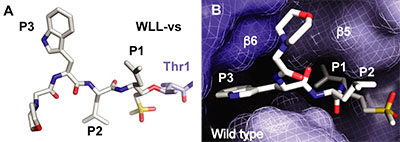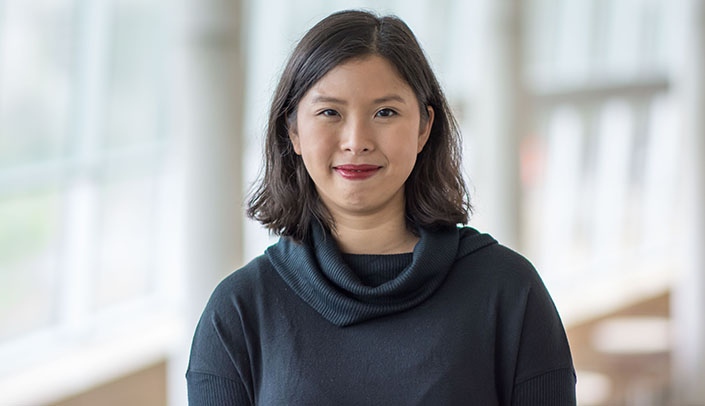Malaria remains a significant global health disease — 40% of the world’s population is at risk of getting malaria. Last year alone, over 200 million individuals were infected, resulting in half a million deaths. There is an urgent need for new antimalarial medications to combat this disease.
 |
On the left is the malaria-specific proteasome inhibitor. On the right, a model of the inhibitor binding to its target (the malaria proteasome). |
The deadliest form of malaria is caused by the eukaryotic single-celled parasite Plasmodium falciparum. Malaria, similar to humans, have proteasomes. The proteasome acts as the garbage disposal of the cell, degrading old or damaged proteins. Drugs that inhibit malaria proteasomes but spare human proteasomes were investigated.
The study, which was funded by the National Institutes of Health, found that these selective inhibitors killed artemisinin-resistant parasites. Additionally, parasites did not easily gain resistance to the inhibitors tested when exposed to sub-lethal concentrations, Dr. Ng said.
“Low-level resistance to one compound rendered parasites very susceptible to the other compound and vice versa,” said Dr. Ng, who is one of the senior corresponding authors.
The team then identified classes of antimalarials that can be paired with proteasome inhibitors to form a potent antimalarial combination therapy.
“Although these classes of drugs had different parasitic targets, they all shared one characteristic trait: each results in an increased accumulation of damaged proteins. Our results open up broad avenues for further antimalarial drug development,” she said. “In short, drugs act together to kill the parasite if one drug damages proteins and the other drug prevents parasites from disposing those damaged proteins, essentially gumming up the system.”
In collaboration with others on the research team, Dr. Ng formulated the idea for the study, secured NIH funding, designed and performed experiments, analyzed results, and prepared the manuscript for publication.

Congratulations Caroline – nice work!